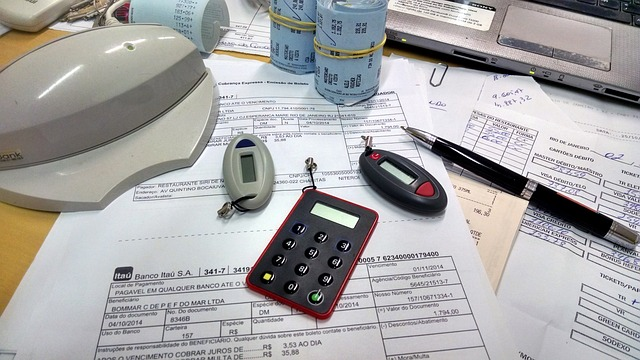Whether you’re organising receipts or managing digital records, knowing the retention requirements can save you from potential legal hassles and financial pitfalls. This guide will take you through the essentials of record-keeping, helping you stay compliant and organised.
Why Business Records Matter

Accurate record-keeping is the backbone of any successful business. It not only helps in tracking your financial health but also ensures compliance with legal requirements.
Proper records can assist in making informed business decisions, preparing tax returns, using business income and providing evidence during audits. For small business owners and startups, this practice can mean the difference between smooth operations and legal complications.
Legal Requirements for Record-Keeping

In the UK, businesses are required to keep certain records for specific periods. These requirements vary depending on the type of records and the nature of your business. Understanding these legal obligations is crucial to avoiding penalties and ensuring your business operates within the law.
Accounting Period
His Majesty’s Revenue and Customs (HMRC) advises that limited companies should keep their records for at least 6 years. From the end of the financial year, they relate to.
This requires you to legally keep your business records for a minimum of 5 years. Usually after the 31st of January. The deadline of the first income tax each year If you are self-employed, and 6 years if you are VAT registered.
This is longer when; (1) your documents show a transaction covering more than one accounting period, (2) you or your company purchase equipment or machinery that will last you a very long time, (3) Your tax return is submitted late, (4) compliance checks into your personal income or company tax return, have been enforced by HMRC.
Keeping your invoices, and bank statements manually has become a practice of the past. Advancement of cloud based software means company records can now be stored digitally. A cheaper, and more greener way of storing data. This may sound like a long time to be keep paperwork in storage. However, with the new software we have in place, your records are held in a safe, online archive. Only accessible by us, and by you– at any time, and any place.
Let’s break down the retention periods for different types of records.
Types of Records to Keep
Financial Records
Financial records are the most critical documents for any business. These include invoices, receipts, bank statements, and payroll records. Keeping these documents organised and up-to-date is essential for accurate financial reporting and compliance with HMRC regulations.
Tax Records
Tax records are another crucial category. These include VAT returns, corporation tax records entries, and self-assessment documentation. Ensuring that these records are maintained correctly can help you avoid issues during tax audits and make the filing process smoother.
Employment Records
For businesses with employees, maintaining employment records is a legal requirement. This includes contracts, payroll information, and employee benefits documentation. Properly managing these records not only ensures compliance but also supports effective HR management.
Retention Periods for Different Records
Financial Records Retention
In the UK, financial records must be kept for at least six years from the end of the last company financial year they relate to. This period allows HMRC to review your financial activities and ensure compliance with tax laws. Keeping these records longer can also be beneficial for historical reference and business planning.
Tax Records Retention
Tax records, including VAT and corporation tax documentation, should also be retained for a minimum of six years. This period aligns with HMRC’s requirements and provides a sufficient timeframe for tax audits and reviews. For self-employed individuals, self-assessment records should be kept for at least five years after the submission of the assessment tax return deadline.
Employment Records Retention
Employment records have varying retention periods. Payroll records must be kept for at least three years from the end of the tax year they relate to. Other employment records, such as contracts and employee benefits information, should be retained for at least six years after an employee leaves the company. This ensures compliance with employment laws and supports effective HR management.
Digital vs. Paper Records

Benefits of Digital Records
In today’s digital age, many businesses are moving towards electronic record-keeping. Digital records offer several benefits, including ease of access, reduced physical storage space, and enhanced security features.
Challenges of Paper Records
While digital records offer many advantages, some businesses still rely on paper documentation. Managing paper records can be challenging due to storage space requirements and the risk of physical damage.
Hybrid Approach
A hybrid approach, combining both digital assets and paper records, can be an effective strategy. This allows businesses to leverage the benefits of digital records while retaining important paper documents.
Best Practices for Record-Keeping
Organise Your Records
Keeping your records organised is crucial for easy access and efficient management. Implementing a filing system, whether digital or physical, can help you categorise and store documents systematically. Regularly updating and reviewing your records ensures they remain accurate and up-to-date.
Use Reliable Software
Investing in reliable accounting and record-keeping software can simplify the process and reduce the risk of errors. Many software solutions offer features such as automatic data entry, real-time updates, and secure storage, making it easier to manage your records effectively.
Conduct Regular Audits
Regularly auditing your records ensures they are accurate and compliant with legal requirements. Conducting periodic reviews helps identify any discrepancies and allows you to address them promptly. This practice also prepares you for potential audits by HMRC or other regulatory bodies.
Common Mistakes to Avoid
Incomplete Records
One of the most common mistakes is keeping incomplete records. Missing documents or insufficient details can lead to issues during audits and financial reporting. Ensuring that all records are complete and accurately reflect your business transactions is essential for compliance and effective management.
Poor Organisation
Disorganised records can make it difficult to find necessary documents when needed. Implementing a systematic approach to organising your records, whether through physical filing systems or digital solutions, helps maintain order and ensures easy access to information.
Neglecting Digital Security
For businesses using digital records, neglecting digital security measures can pose significant risks. Ensuring that your digital records are protected with strong passwords, encryption, and regular backups is crucial to prevent data breaches and loss of information.
Benefits of Effective Record-Keeping
Improved Financial Management
Effective record-keeping enhances your ability to manage your finances accurately. Having up-to-date records allows you to track income and expenses, monitor cash flow, and make informed business decisions. This practice also supports effective budgeting and financial planning.
Simplified Tax Compliance
Keeping accurate and organised records simplifies the process of preparing and filing tax returns. Having all necessary documents readily available ensures compliance with HMRC requirements and reduces the risk of errors and penalties.
Enhanced Business Credibility
Maintaining accurate records enhances your business’s value and credibility with stakeholders, including investors, creditors, and regulatory bodies. Transparent and well-managed records demonstrate your commitment to financial responsibility and compliance with legal requirements.
Tools and Resources for Record-Keeping
Accounting Software
Investing your money in reliable accounting software can streamline your record-keeping processes and ensure accuracy. Many software solutions offer features such as automated data entry, real-time updates, and secure storage, making it easier to manage your records effectively.
Cloud Storage Solutions
Using cloud storage solutions provides secure and convenient access to your digital records from anywhere. Cloud storage also offers features such as automatic backups and encryption, ensuring your records are protected and readily available when needed.
Professional Services
Engaging professional services, such as accountants or bookkeepers, can provide expert guidance and support for managing your records. These professionals can help ensure compliance with legal requirements and offer valuable insights for improving your record-keeping practices.
Frequently Asked Questions
How Long Should I Keep Bank Statements?
In the UK, businesses should keep bank statements for at least six years. This period aligns with HMRC’s requirements for banks and ensures your financial records remain complete and accessible for audits and reviews.
What Records Do I Need to Keep for VAT?
For VAT purposes, businesses should keep records of all sales and purchases, VAT payments, invoices, and VAT returns. These records should be retained for at least six years to comply with HMRC requirements.
Can I Store My Records Digitally?
Yes, businesses in the UK can store their records digitally. Digital records offer several benefits, including ease of access, reduced physical storage space, and enhanced security features. However, it’s essential to ensure that digital records are protected with strong passwords, encryption, and regular backups.
Conclusion
In conclusion, mastering the art of record-keeping is vital for the success and compliance of any business. By following the guidelines outlined in this post, you can ensure that your records are accurate, organised, and compliant with legal requirements. For further guidance and support, feel free to reach out to professional services or explore our recommended tools and resources.
We personally know how beneficial digital records are to our clients, especially from 16-17 years in the accounts industry,. Having boxes of invoices and receipts stored in your loft can be frustrating, and costly.
Whether you are in Cardiff or anywhere in the world, Accounted For can view your documents regularly and advise you on how to best manage your documents.
https://www.gov.uk/running-a-limited-company/company-and-accounting-records/








